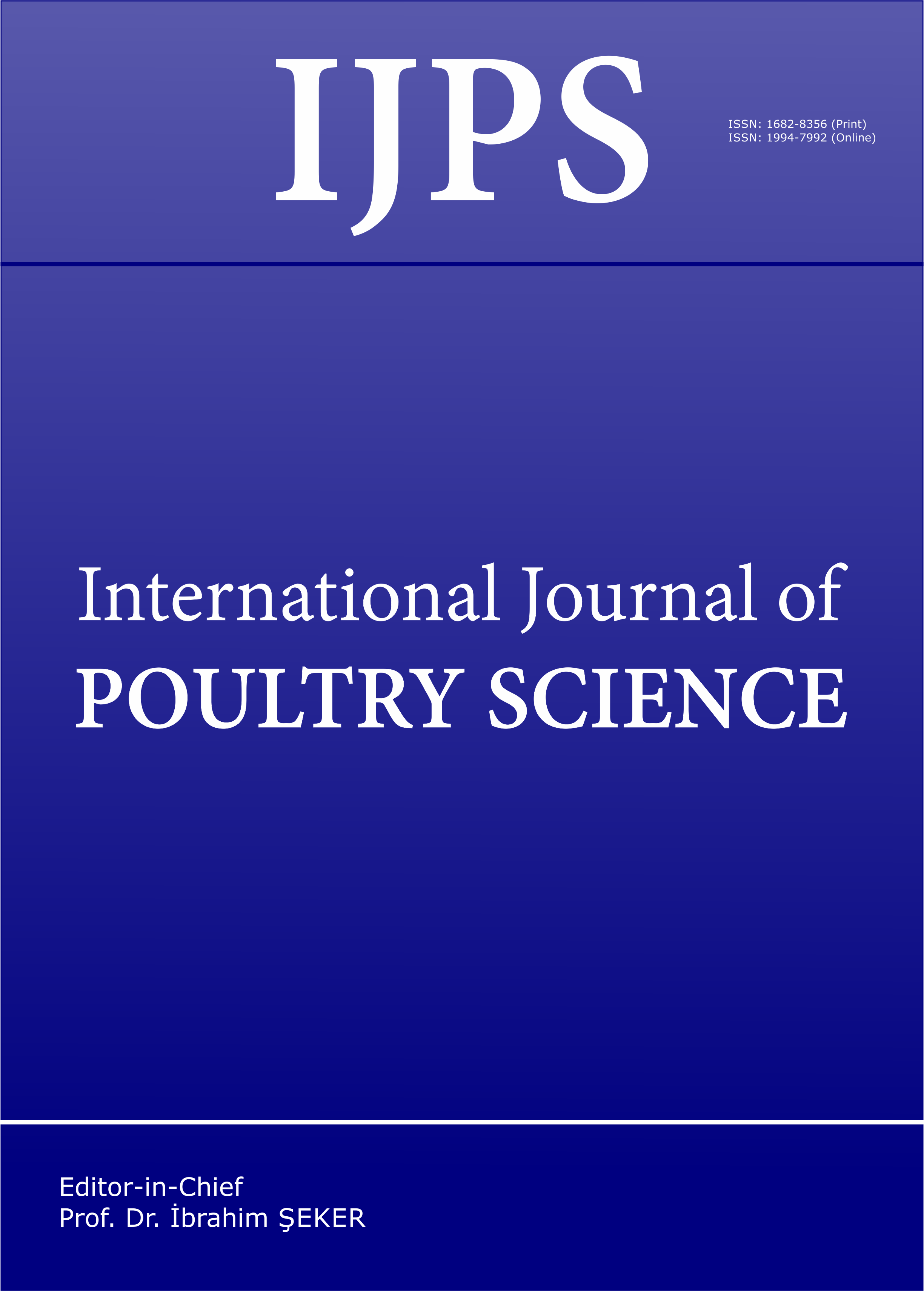Growth, Carcass Quality and Serum Constituents of Slow Growing Chicks as Affected by Betaine Addition to Diets Containing 2. Different Levels of Methionine
DOI:
https://doi.org/10.3923/ijps.2005.856.865Keywords:
Antibody response, betaine, growth performance, meat quality, MethionineAbstract
The responses of slow growing chicks to different dietary levels of methionine and betaine and their interaction were investigated during the starter-grower period from 1 to 56 d of age. Therefore, a basal marginally methionine deficient all-mash corn-soybean meal diet was formulated to contain 0.32% methionine, 0.65% total sulphur amino acid (TSAA) and adequate level of choline (NRC, 1994). This diet was supplemented with 0, 0.05 and 0.10% of DL-methionine. Each methionine level was supplemented with 0.0, 0.035 and 0.07% betaine. Thus, there were nine experimental diets; each diet was fed to 40 chicks divided equally among 5 replicates of eight chicks each. Methionine level at 0.37 and 0.42% significantly improved BWG by 2.1 and 8.1% and FCR by 4.5 and 8.6% compared to the basal diet, respectively. Methionine level at 0.37 and 0.42% increased blood serum total protein, albumin, globulin, antibody response to Newcastle disease virus (NDV), and percentage carcass yield, feather weight and CP of muscle tissue compared to the basal diet. Moreover, methionine at 0.37 and 0.42% significantly decreased serum AST and ALT, and abdominal fat compared to the basal diet. Betaine supplementation at either 0.035 or 0.070% significantly improved BWG by 5.1 and 9.0%, and FCR by 8.4 and 12.0% compared to the basal diet, respectively. Betaine supplementation improved percentage carcass yield, feather weight and CP of muscle tissue, while a significant decrease in blood serum ALT was observed at 0.07% betaine. There were significant interaction between methionine level and betaine supplementation in BWG and FCR, indicating that betaine addition at 0.035% to the basal diet (0.32% methionine) resulted in similar BWG and FCR to those fed diet containing 0.37% methionine and supplemented with same level of betaine. Meanwhile, betaine supplementation at 0.07% to the basal diet resulted in similar BWG and FCR of those fed 0.37% methionine supplemented with 0.07% betaine or those fed 0.42% methionine without or with any level of betaine. In conclusion, slow growing chicks (14.6 g/d) during 1-56 d of age could be fed diet containing 0.42% methionine. However, when diet was supplemented with 0.07% betaine, methionine level could be decreased to 0.37 or even to 0.32%.
Downloads
Published
Issue
Section
License
Copyright (c) 2005 Asian Network for Scientific Information

This work is licensed under a Creative Commons Attribution 4.0 International License.
This is an open access article distributed under the terms of the Creative Commons Attribution License, which permits unrestricted use, distribution and reproduction in any medium, provided the original author and source are credited.

